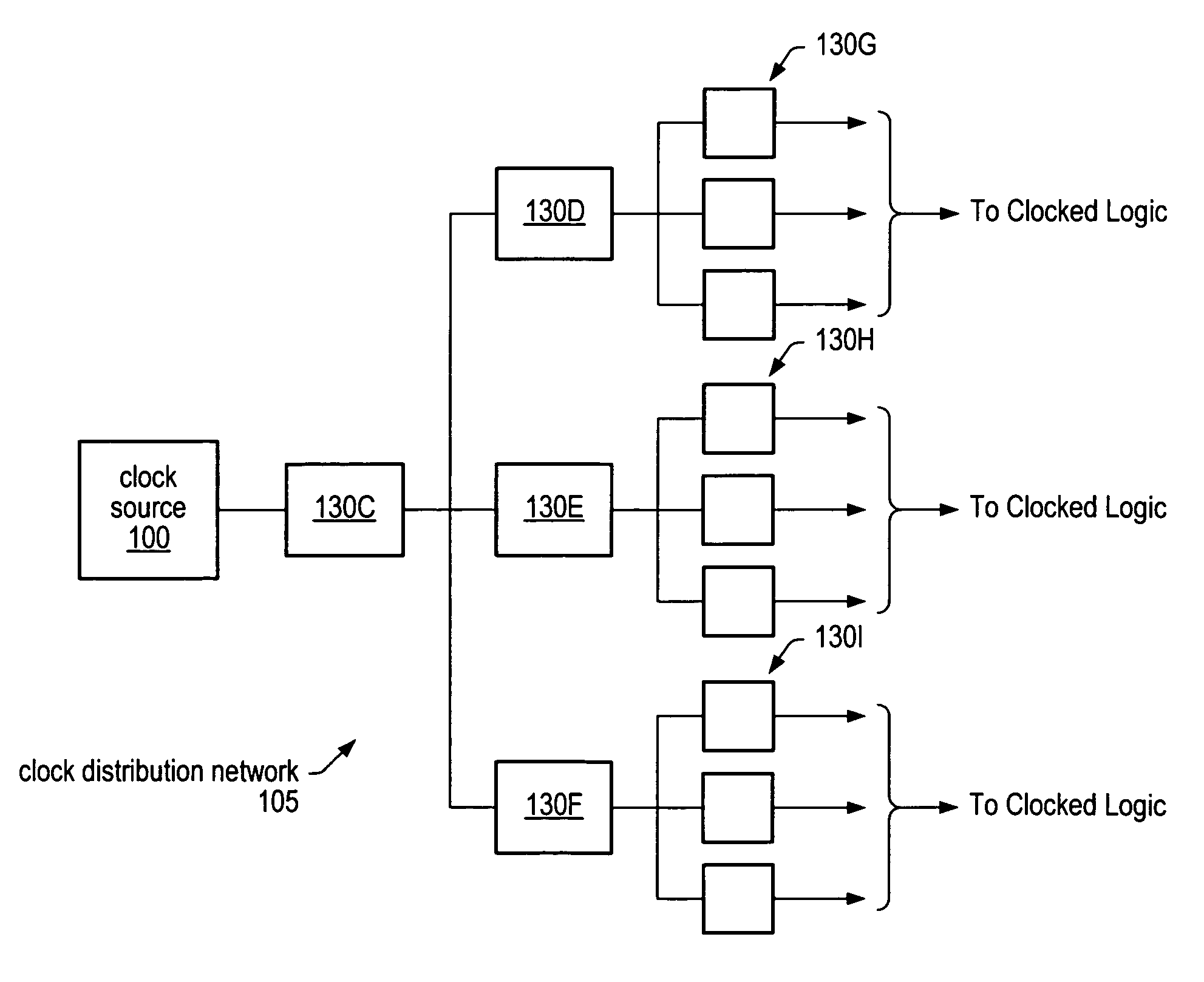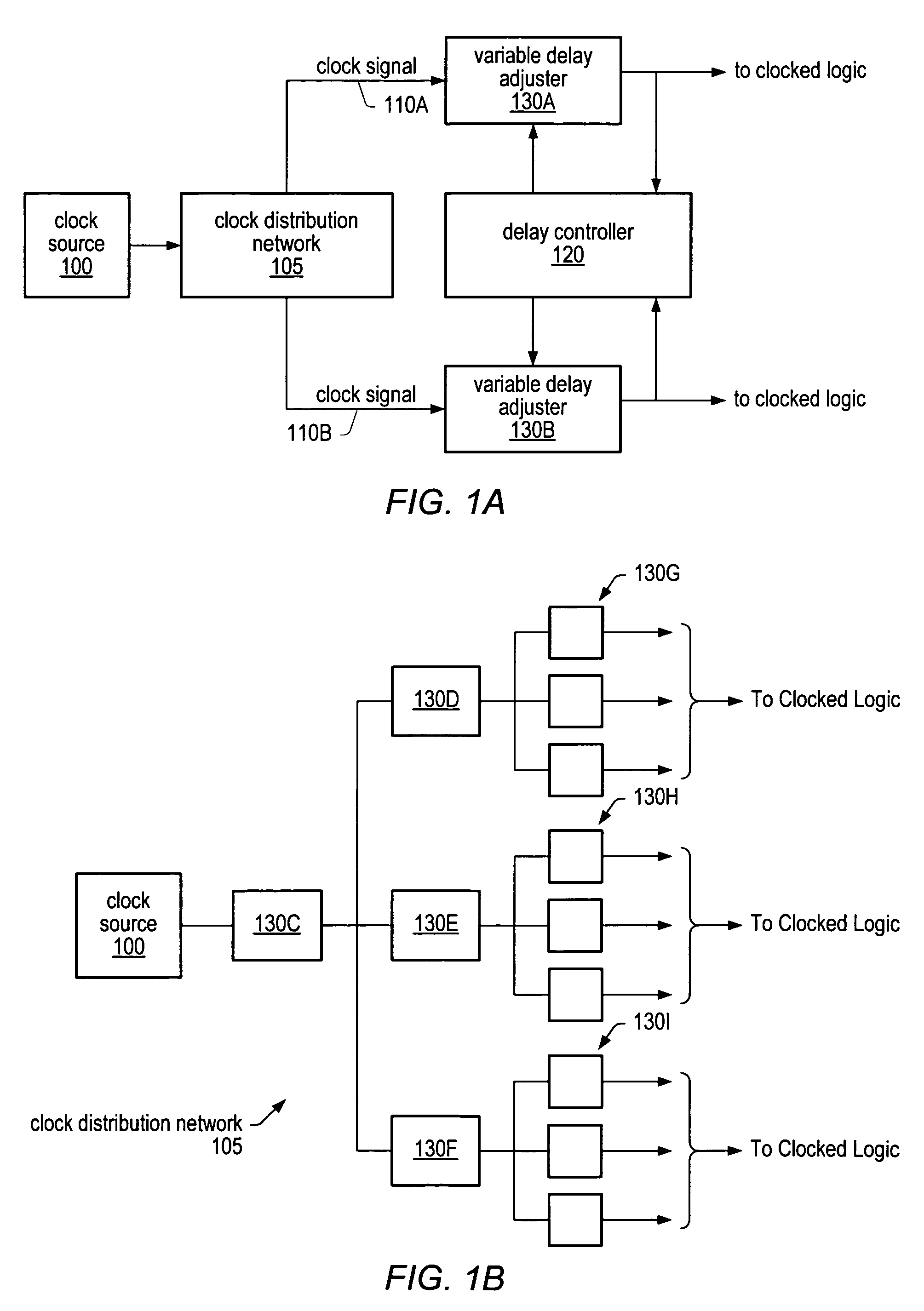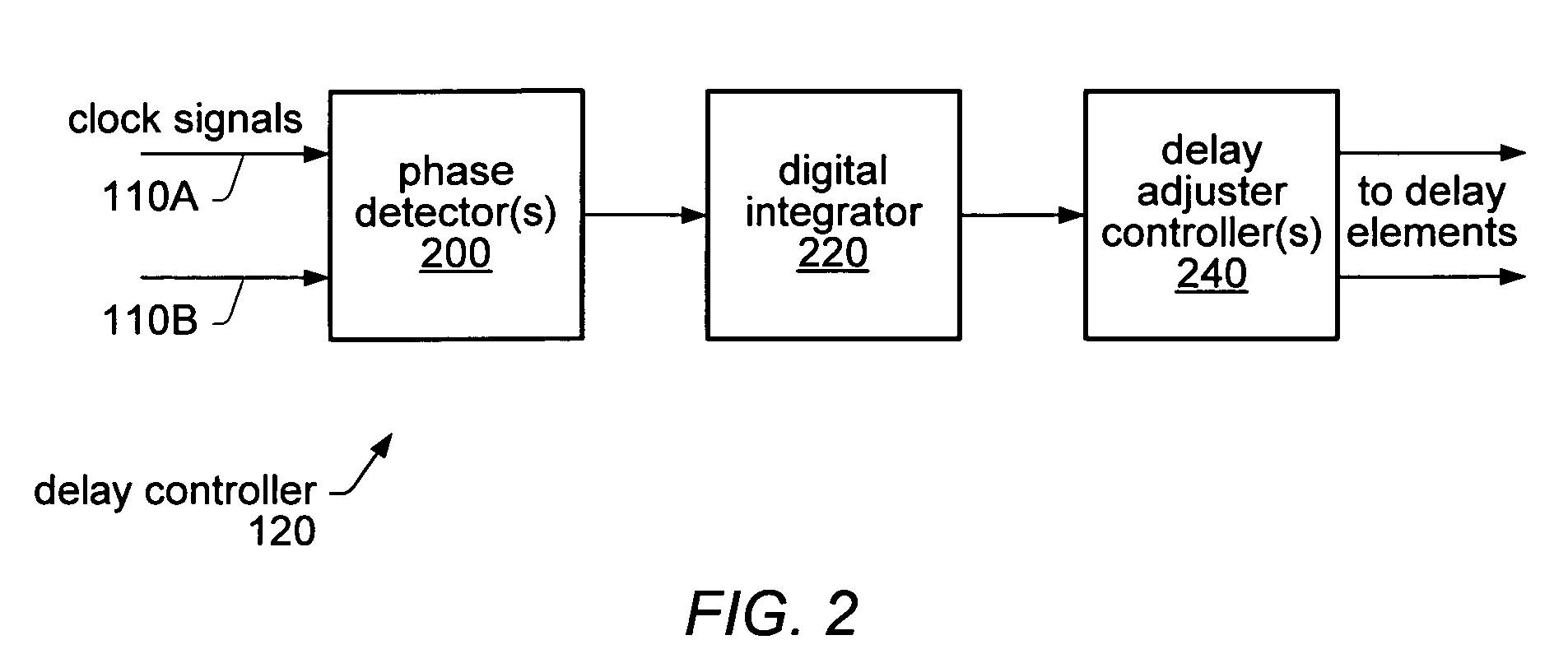Controller for clock skew determination and reduction based on a lead count over multiple clock cycles
a clock cycle and control board technology, applied in the field of integrated circuits, can solve the problems of complex logic core design, signal to travel faster or slower, etc., and achieve the effect of measuring or describing the amount of jitter in the clock signal
- Summary
- Abstract
- Description
- Claims
- Application Information
AI Technical Summary
Benefits of technology
Problems solved by technology
Method used
Image
Examples
Embodiment Construction
[0027]As noted above, clock skew, duty cycle and / or clock jitter may be detected, measured and, in some cases, corrected using phase detectors, digital counters and adjustable delay controllers. FIG. 1A is a block diagram illustrating one embodiment of circuit logic for determining and correcting clock skew in an integrated circuit. As illustrated in FIG. 1A, an integrated circuit may include a clock source 100 that is routed through a clock distribution network 105 to divide or split the clock signal into multiple signals, such as clock signals 110A and 110B. For example, clock distribution network 105 may represent a clock tree, grid, or other distribution network, according to various embodiments. While FIG. 1A only shows two resultant clock signals, namely 110A and 110B, FIG. 1A only illustrates a single, exemplary embodiment and other embodiments may include many more clock signals output from clock distribution network 105. As noted above, variable delay adjusters, such as var...
PUM
 Login to View More
Login to View More Abstract
Description
Claims
Application Information
 Login to View More
Login to View More - R&D
- Intellectual Property
- Life Sciences
- Materials
- Tech Scout
- Unparalleled Data Quality
- Higher Quality Content
- 60% Fewer Hallucinations
Browse by: Latest US Patents, China's latest patents, Technical Efficacy Thesaurus, Application Domain, Technology Topic, Popular Technical Reports.
© 2025 PatSnap. All rights reserved.Legal|Privacy policy|Modern Slavery Act Transparency Statement|Sitemap|About US| Contact US: help@patsnap.com



